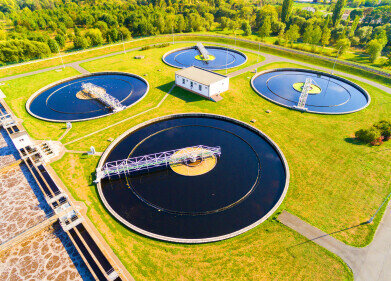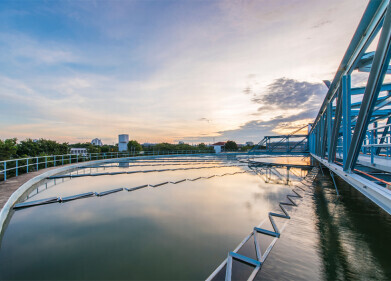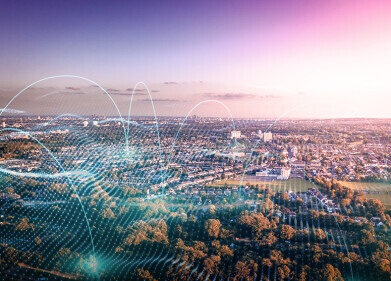Water/Wastewater
New Technologies give City Residents in China Solutions to Make Tap Water Drinkable
Jun 19 2013
Water contamination in China’s major cities is a serious concern for its dense populations, making it a basic necessity for households to find ways to ensure that the water coming through their taps is fit for domestic use. Now, various new, simple-to-use and even inexpensive technologies that monitor and control water quality in residential roof-top water tanks have entered the Chinese market, making it easier for the residents of Shanghai, Beijing and other highly populated cities whose water sources are prone to contamination to rest assured that the water at home is safe for use not only for hygiene but also for drinking and cooking.
It has been widely reported that many of China’s cities have highly polluted waterways due to industrial waste pollution, making domestic water vulnerable to industry-produced chemicals. Pollution is a serious concern in Beijing, leading China to develop a new plan to improve that situation over the coming years, according to a Reuters report. And earlier this year, thousands of pig carcasses were found floating in the Huangpu River, Shanghai’s main water source for drinking water, posing a serious health hazard for residents.
As such, residents and visitors to China are mostly advised to use tap water for hygiene only and to use bottled or boiled water for drinking, the former being a major expense and the latter a serious inconvenience.
So how can China’s city-dwellers make their tap water fit for consumption despite the unpredictable quality of the water?
Many of the cities’ residential buildings and towers supply domestic water to homes via rooftop water tanks, and in some areas the water is heavily chlorinated for disinfection, making it unpleasant to use. Besides the problem of municipal-sourced contamination, water tanks can develop mold or bacteria from foreign organisms, such as bird droppings and even dead fowl. They might be emptied, inspected and cleaned only once every year or two, while it takes only one day for water to become contaminated or for its chlorine levels to become unbalanced and unfit for home use.
So an efficient and cost-effective way for residents, hotels, and office buildings to continuously monitor the water quality is by installing a water analyser and controller on-site, such as the Prizma, which is a patented technology developed by Blue I Water Technologies (Israel). This particular solution uses a special and innovative electro-optic test strip technology for monitoring and controlling the water’s chemical levels, such as chlorine and pH. This system is set to automatically test the water in the residential tank at regular intervals (usually once a day) and assures chemical balancing for the water. It is automatically calibrated and alerts management of inadequate disinfection in real time via online reports, allowing for a prompt response to the problem. Intended for residential use, maintenance of this technology only requires switching its test strip cartridge and does not involve training or technical know-how. The electro-optics give accurate and repetitive reading of the test results, which are transmitted to the user with a remote status report via cell phone, SMS or Ethernet.
“While solving the problem of water contamination might have become a national mission for China, residents still cannot always know whether the water coming into their taps from municipal and national systems is fit for use at all times. They need to have low-cost solutions such as this one to ensure that their home water is clean and safe for use and to feel that they have that under control,” says Stela Diamant, Chief Technology Officer for Blue I Water Technologies.
“A small investment in monitoring the water coming from the rooftop tank with the latest in automated systems is probably well worth it to avoid the distress of finding out about a severely contaminated water supply after using it,” adds Blue I Water Technologies CEO Jacob Azran.
Digital Edition
IET 34.2 March 2024
April 2024
Gas Detection - Biogas batch fermentation system for laboratory use with automatic gas analysis in real time Water/Wastewater - Upcycling sensors for sustainable nature management - Prist...
View all digital editions
Events
Apr 22 2024 Hannover, Germany
Apr 22 2024 Marrakech, Morroco
Apr 23 2024 Kuala Lumpur, Malaysia
Apr 23 2024 Kintex, South Korea
Apr 23 2024 Edmonton, AB, Canada


















